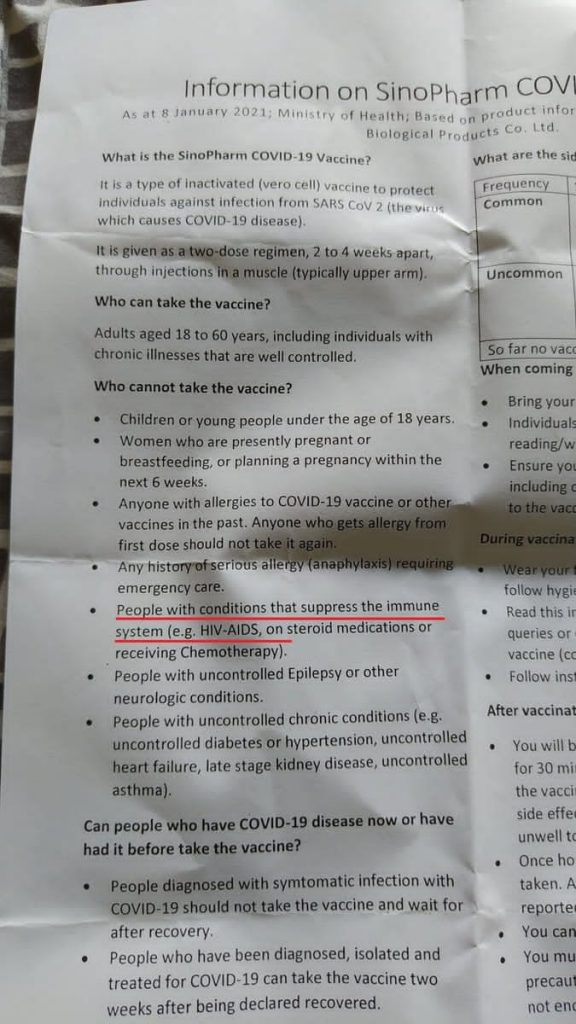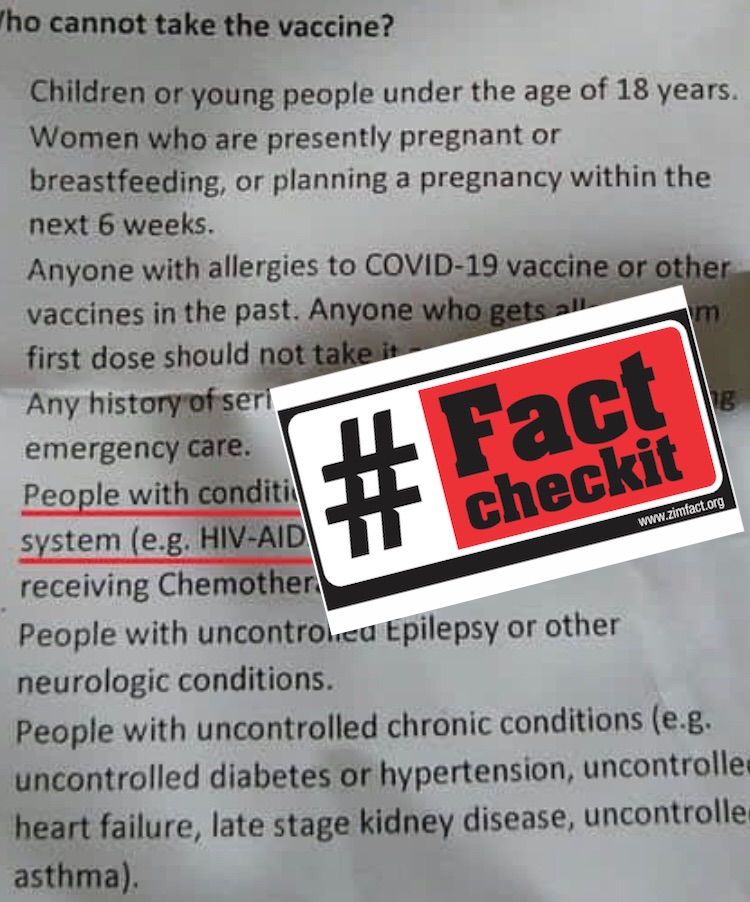Claim: Sinopharm has released production information showing groups that cannot take its COVID19 vaccine
Source: News and social media reports
RATING: Incorrect: A widely circulating pamphlet showing a list of people not recommended for Sinopharm is part of a policy document issued by the Seychelles government.
An image of a pamphlet showing a list of people that cannot take the Sinopharm vaccine has circulated widely in Zimbabwe, where the vaccine has started being used.

Social media posts claimed that this was product information on the company. This raised suggestions that it is not a suitable vaccine for Zimbabwe. The website NewZimbabwe.com said it was from “a pamphlet accompanying the medicine”. The Pindula website described it as “the vaccine’s manual that was seen by Journalist Hopewell Chin’ono“.
This is not true.
The pamphlet is actually guidance issued by the Seychelles government, which has begun using the Sinopharm vaccine.
More importantly, the information given is broadly in line with recommendations on other vaccines.
Governments have adopted their own policies on different vaccines, based on available product information and guidelines given by the World Health Organisation (WHO) and other experts.
The WHO’s recommendations for other vaccines such as Pfizer and AstraZeneca are not too different.
Here is a list of people that, according to the WHO, cannot take the Pfizer vaccine or those that must exercise caution.
- People with allergies
- Pregnant and breastfeeding women, “due to insufficient data”
- Children; the Pfizer vaccine has only been tested in children above 16
- Immune-compromised persons can be vaccinated only after “receiving information and counselling” because there isn’t enough data
- People living with HIV can be vaccinated only after being counselled that there is “limited safety data”
- People with hypertension, diabetes, asthma, pulmonary, liver or kidney disease can take the vaccine only if their condition is “stable and controlled”.
What about AstraZeneca?
This is what WHO says about this vaccine:
- People living with HIV may be vaccinated, but must be told that there is no safety data
- Breastfeeding women can be vaccinated only if they are in a priority group
- Pregnant women may get the vaccine only “if the benefit of vaccinating a pregnant woman outweighs the potential vaccine risks”. An example of this would be a pregnant frontline worker.
- People with severe allergies should not take the vaccine.
- Children under 18 should not be vaccinated, as no tests were done on kids.
It is from such guidance that different governments come up with different approaches on who gets a vaccine, and who does not.
An example is the UAE, which is using both Sinopharm and Pfizer. The United Arab Emirates (UAE) Health Ministry will not vaccinate people with severe allergies, pregnant and breastfeeding women, women who plan to get pregnant in the next three months, or those with a history of severe COVID-19 illness.
Similarly, the government of Cambodia issued its own guidance on Sinopharm, which excludes people with chronic illnesses, children, as well as other groups. That country’s guidance has also circulated widely on Zimbabwean social media.
Conclusion
The Sinopharm information in the widely circulated image is based on recommendations issued on most vaccines. Data is still limited on all vaccines, and the WHO and other experts have issued recommendations that governments are using differently.
Do you want to use our content? Click Here












